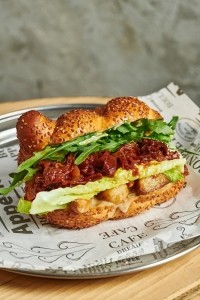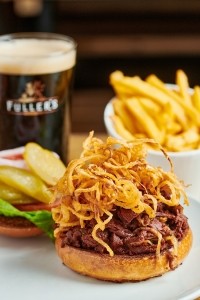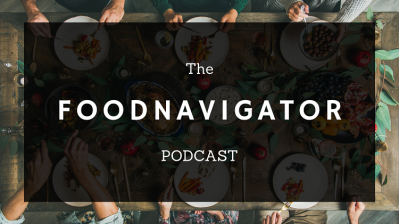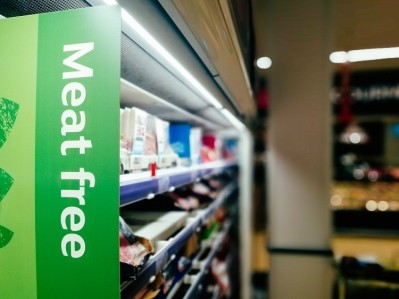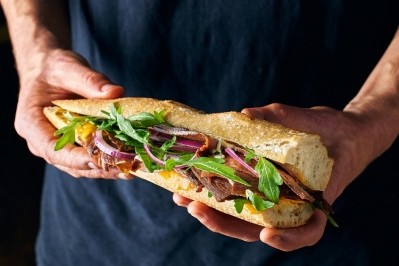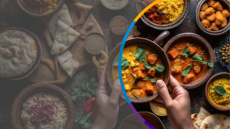Industry tie-up for ‘meaty’ alt protein made from pumpkin seeds: ‘We don’t focus on replicating meat; our products stand on their own’
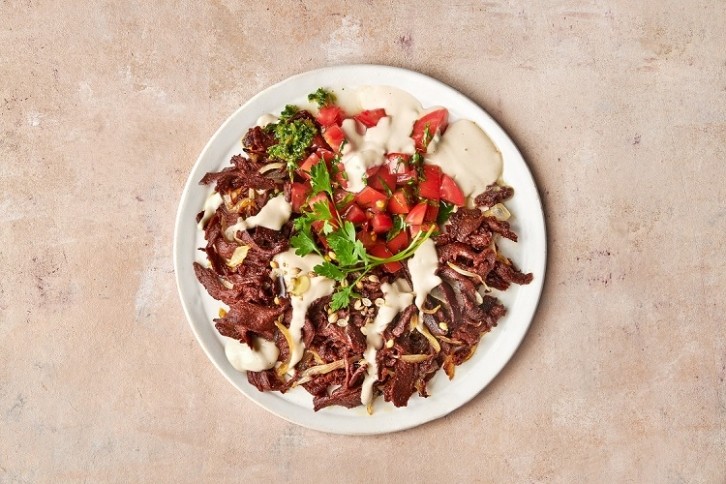
Israeli start-up More Foods, which makes ‘meaty’ products made from pumpkin seeds, is announcing a strategic collaboration with Osem-Nestlé Group subsidiary Tivol.
The collaboration will see More Foods and the Osem-Nestlé Group create a portfolio of pumpkin seed-based ‘meaty’ products for main meals in Israel, and marks a ‘first-of-its-kind’ tie-up for Tivol.
For More Foods, the collaboration offers an opportunity to combine its ‘unique product offering’ with the ‘vast reach’ of Osem-Nestlé Group – a company formed out of a merger between the two businesses last decade.
Developing a ‘main-meal experience’ with plants
More Foods’ plant-based ‘meaty’ offering is produced using a ‘limited number’ of raw ingredients, including pumpkin seeds and sunflower seeds. Such raw materials can be sourced from side streams of the oil seed industry, and as such, are ‘widely available’ from various geographies, explained More Foods founder and CEO Leonardo Marcovitz.
“There is an entire industry whose main commercial activity is to extract oil from those seeds. After the oil has been extracted, there is a side-stream, the solid nutritious side-stream from the seeds.”
The result is a ‘meaty’ product which, Marcovitz explained, means some of its attributes are similar to meat. But overall, More Foods is not focused on replicating meat.
“We focus on making tasty ‘main-meal experiences’ by creating foods that are tasty, high in protein, satisfying, and have a great bite. More Foods makes products that are textured and some of our form factors are called ‘pulled’, ‘chunks’, ‘thick sliced’, and others.”
The start-up believes that by making products that ‘stand on their own’ with ‘no need for comparison’, its customers can use them in all types of products. The same product, for example, can be used to make vegan sushi, burritos, stir-fries, and poke bowls. “It’s extremely versatile,” Marcovitz told this publication.
Spotlight on nutrition
From a nutritional standpoint, the start-up’s ‘meaty’ product is high in fibre and protein, low in fat, and contains no cholesterol. As to whether More Foods’ products are developed to mimic the nutritional composition of meat, the founder explained many of the values are actually higher than meat. But mimicking is not the aim.
Per 100g, More Foods has 8mg of iron (around three times that of beef), 130mg of calcium (beef has ‘almost none’), 600mg of potassium (around twice that of beef), and 7g of fibre. Looking at protein in particular, More Foods contains 27% protein, whereas a relatively lean cut of meat like a brisket contains more like 20%, we were told.
Being ‘clean label’ is also an important element for nutrition, the start-up suggested. “Allowing More Food to expand its presence and offer its innovative plant-based products to a larger consumer base, the collaboration will put ‘clean label’
products on shelves to provide consumers with a healthy and juicy main meal food with a desirable meaty composition.”
More Foods eyes Europe and UK
More Foods is already selling into the market via foodservice channels, with its ‘meaty’ seed-based meat substitute on menus across 100 Israeli restaurants. Distribution is now beginning in the UK and Europe, and entry into retail is on the horizon, revealed the CEO.
“We have just partnered with a third-party logistics company that will allow us to serve the UK market. Across Europe, we already have the capacity to distribute large order volumes and are now in conversations with regional distributors to expand our reach.”
Within Israel, the collaboration with Osem-Nestlé for Israeli will add more to More Foods’ efforts to transform how consumers perceive and consume food, in a country where 13% of the population identify as vegetarian or vegan, and an additional 45% say they are actively reducing their meat consumption, we were told.
“We are proud to partner with the Osem-Nestlé Group and combine our unique product offering with their market accessibility.”
